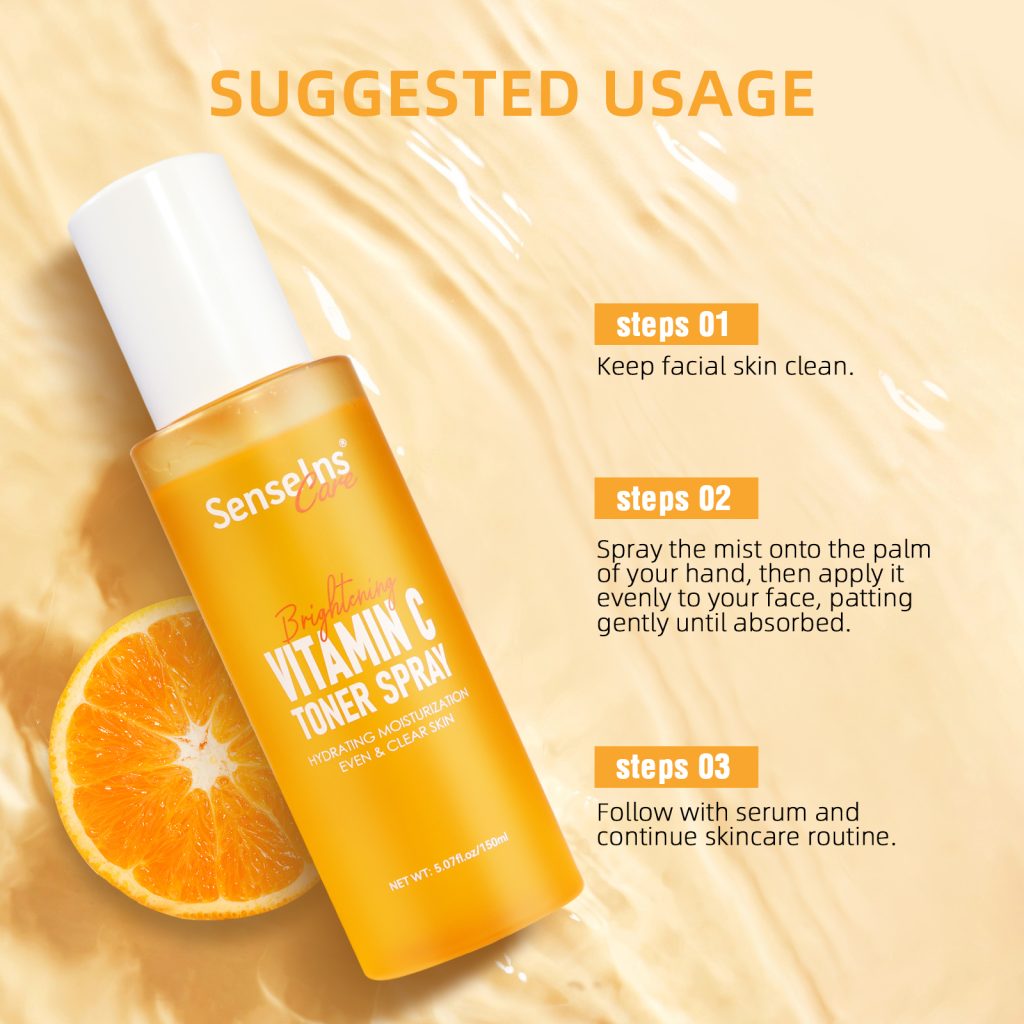Introduction
Facial toners have been a staple in many skincare routines for decades, yet they remain one of the most controversial products in the beauty industry. Some view them as an essential step in achieving clear and radiant skin, while others dismiss them as unnecessary. In recent years, dermatologists have weighed in on this debate, providing clarity and expert insights into the true benefits of facial toners. This article aims to explain why facial toners are essential for your skincare routine, supported by dermatological expertise.

What is a Facial Toner?
Definition and Purpose
Facial toners are liquid products designed to be applied to the face after cleansing. They are formulated to remove any remaining impurities, balance the skin’s pH levels, and prepare the skin for subsequent skincare products. Historically, toners were used to remove soap residue left behind after cleansing with harsh soaps. Over time, formulations have evolved significantly.
Types of Facial Toners
- Hydrating Toners: These toners focus on replenishing the skin’s moisture levels. They often contain ingredients like hyaluronic acid, glycerin, and aloe vera.
- Exfoliating Toners: Formulated with acids like AHAs (alpha hydroxy acids), BHAs (beta hydroxy acids), and PHAs (polyhydroxy acids), these toners help to gently exfoliate the skin, removing dead skin cells and promoting cell turnover.
- pH-Balancing Toners: Designed to restore the skin’s natural pH level, which can be disrupted by cleansing, these toners help maintain the skin’s barrier function.
- Treatment Toners: These toners are formulated to address specific skin concerns such as acne, hyperpigmentation, or signs of aging, often containing active ingredients like salicylic acid, niacinamide, or antioxidants.
The Science Behind Facial Toners
Skin pH Balance
The skin’s natural pH is slightly acidic, typically around 4.5 to 5.5. Cleansing can disrupt this balance, making the skin more alkaline and potentially leading to dryness and irritation. Toners help to quickly restore the skin’s optimal pH, supporting a healthy skin barrier.
Cleansing and Residue Removal
Even after thorough cleansing, traces of dirt, oil, and makeup can remain on the skin. Toners act as a second cleanse, ensuring that the skin is completely clean and free from impurities that could clog pores or cause breakouts. This step is particularly beneficial for those with oily or acne-prone skin.
Preparation for Skincare Products
Toners prime the skin to better absorb serums, moisturizers, and other treatments. By hydrating and balancing the skin, toners create an ideal environment for active ingredients to penetrate more deeply and work more effectively.

Dermatologists’ Insights on the Benefits of Facial Toners
Hydration and Moisture Retention
Dermatologists emphasize the importance of hydration for all skin types. Hydrating toners provide an additional layer of moisture, enhancing the skin’s overall hydration. Ingredients like hyaluronic acid can attract and retain water, helping to plump and smooth the skin.
Exfoliation and Skin Renewal
Exfoliating toners offer a gentle way to remove dead skin cells, promoting a brighter and more even complexion. Dermatologists recommend these toners for their ability to improve skin texture and prevent clogged pores. Key ingredients to look for include glycolic acid (an AHA) and salicylic acid (a BHA).
Acne Prevention and Treatment
For those with oily or acne-prone skin, toners can be particularly beneficial. Ingredients like salicylic acid and witch hazel help to control oil production, reduce inflammation, and prevent breakouts. Dermatologists often recommend toners as part of a comprehensive acne treatment regimen.
Anti-Aging Benefits
Toners can also address signs of aging. Antioxidant-rich toners protect the skin from environmental damage, while peptides and niacinamide can improve skin elasticity and reduce the appearance of fine lines and wrinkles. Dermatologists highlight the importance of these ingredients in maintaining youthful, healthy skin.
How to Choose the Right Toner for Your Skin Type
Understanding Your Skin Type
Knowing your skin type is crucial in selecting the right toner. Whether your skin is oily, dry, combination, or sensitive will determine which toner ingredients and formulations will be most beneficial.
Matching Toners to Skin Concerns
- Oily/Acne-Prone Skin: Look for toners with salicylic acid, witch hazel, or tea tree oil to control oil and prevent breakouts.
- Dry Skin: Hydrating toners with hyaluronic acid, glycerin, and aloe vera will provide much-needed moisture.
- Combination Skin: Opt for a balancing toner that can hydrate dry areas while controlling oil in the T-zone.
- Sensitive Skin: Choose gentle, alcohol-free toners with soothing ingredients like chamomile and rose water.
Reading Labels and Understanding Ingredients
Understanding the ingredients in your toner is essential for making an informed choice. Avoiding harmful ingredients like alcohol, fragrances, and harsh chemicals can prevent irritation and ensure the toner is beneficial for your skin.

Common Myths and Misconceptions About Toners
Toners Are Just Fancy Water
One common misconception is that toners are unnecessary or simply fancy water. Dermatologists explain that modern toners are formulated with active ingredients that provide specific benefits, making them a valuable addition to any skincare routine.
All Toners Are Harsh and Drying
Another myth is that all toners are harsh and drying. While older formulations often contained high levels of alcohol, today’s toners are designed to be gentle and nourishing, with many options available for sensitive and dry skin.
Toners Are Only for Oily Skin
Many people believe that toners are only suitable for oily or acne-prone skin. In reality, there are toners formulated for all skin types, each offering unique benefits such as hydration, soothing, and anti-aging properties.
Incorporating Toners into Your Skincare Routine
Step-by-Step Guide
- Cleanse: Start with a gentle cleanser to remove dirt and impurities.
- Tone: Apply toner using a cotton pad or by patting it directly onto the skin with your hands.
- Treat: Follow with serums, treatments, or any active ingredients your routine includes.
- Moisturize: Finish with a moisturizer to lock in hydration.
- Protect: In the morning, apply sunscreen as the final step.
Frequency of Use
The frequency of toner use depends on your skin type and the specific toner formulation. Hydrating and pH-balancing toners can often be used twice daily, while exfoliating toners may be better suited for 2-3 times a week.
Complementing Other Skincare Products
Toners should complement your existing skincare products, enhancing their efficacy. Ensuring compatibility between products can prevent irritation and maximize benefits.
Expert Recommendations and Top Toners on the Market
Dermatologist-Approved Toners
- Hydrating Toner: Klairs Supple Preparation Unscented Toner
- Exfoliating Toner: Paula’s Choice Skin Perfecting 2% BHA Liquid Exfoliant
- pH-Balancing Toner: Cosrx AHA/BHA Clarifying Treatment Toner
- Treatment Toner: Thayers Witch Hazel Toner with Aloe Vera

Product Reviews
- Pixi Glow Tonic: Known for its gentle exfoliating properties, this toner is a favorite for achieving a radiant complexion.
- Fresh Rose Deep Hydration Facial Toner: Infused with real rose petals, this hydrating toner is praised for its soothing and moisturizing effects.
- La Roche-Posay Effaclar Clarifying Solution Acne Toner: Recommended for acne-prone skin, this toner helps clear breakouts and refine pores.
Where to Buy
- Online Retailers: Sephora, Ulta, Amazon
- Physical Stores: Drugstores, department stores, specialty beauty stores
- Dermatologist Offices: Many dermatologists offer professional-grade skincare products, including toners.
Conclusion
Facial toners offer numerous benefits that can enhance any skincare routine. From restoring pH balance and providing hydration to exfoliating and treating specific skin concerns, toners are a versatile and valuable skincare product. Dermatologists emphasize their importance and recommend incorporating them into daily skincare practices.
Call to Action
Consider evaluating your skincare routine and adding a toner that suits your skin type and concerns. Consult with a dermatologist for personalized recommendations and stay informed about the latest advancements in skincare. Share your experiences and results from using facial toners to help others make informed decisions about their skincare routines.



